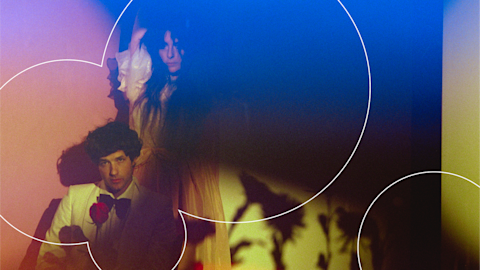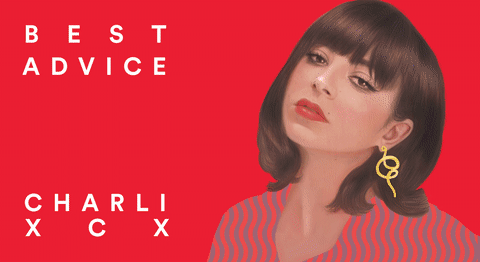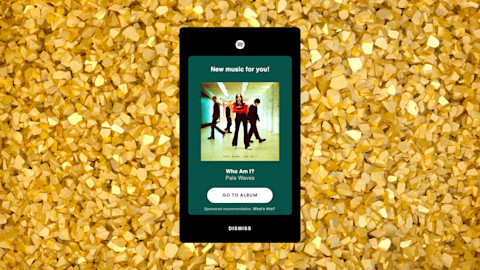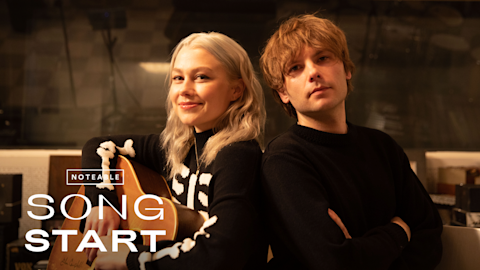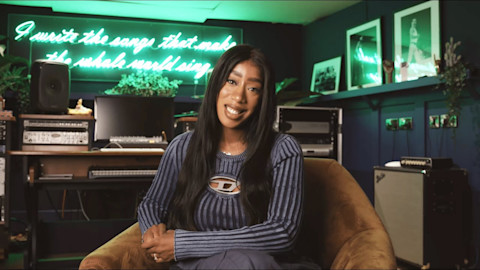Social media can be stressful, and we’re not just talking about the latest celebrity Twitter war or your uncle’s nutty Facebook rant. With so much content out there and so many platforms to choose from, promoting your music on social can start to feel pretty overwhelming pretty quick. “The thing that I try to stress,” says Nancy Baym, a principal researcher at Microsoft and author of Playing to the Crowd (NYU Press), which looks at how technology has fostered intimacy between musicians and their fans, “is that there isn't really a right way to do social media. That's kind of the trap that people are in—they think there's a right way to do it.”
Just as there isn't one way to craft a great song, there's no single way to have a successful social-media strategy—although there are a few best practices. We recently chatted with Baym, as well as Deana Cosper, head of social for WMA, and compiled this list of tips and tricks. Hope you, uh, like it.
Find your platform. Selecting a platform that's right for you can be tricky. If you're most comfortable working with eye-catching visuals, Instagram might be the way to go. Into wisecracks and bantering with fans? Twitter is the place for you. But it's important to keep at least an occasional presence on every social-media platform, if only to cut off the possibility of imposters. "Focus on one that you're really comfortable on, then make sure you still have a presence on the others," says Cosper. "You don't want to segregate fan communities just because some people might not be comfortable with a new platform." For example, if your primary social-media focus is Instagram, says Cosper, you can use Facebook as a "best-of" repository—new music releases, inclusion on high-profile playlists, campaigns where you want to mobilize fans—and Twitter as a place to share the occasional odd thought.
Everything you post doesn’t have to be indelible. Some posts were made to self-destruct. The rise of Snapchat has led to Facebook and Instagram launching "stories," which are made for ephemeral content—they expire after a day. If you're keen to share an image but don't necessarily want to have it stay on your page indefinitely and don't want to put it on Twitter, posting it as a story, complete with captions and stickers that can add extra pops of personality, might be the way to go. It'll get those fans who are already following you extra-engaged—especially if you use the stories' video capabilities to offer limited-edition peeks into your process, like snippets of forthcoming songs or clips from the studio.
Quality over quantity. The more casual nature of Instagram Stories and Facebook Stories can also allow artists to focus on the highest-quality posts for their main feed, allowing them to bubble up and get lots of engagement.
Keep it short. Twitter's 280-character limit forces brevity, but text on Facebook and Instagram, in most cases, should also be crafted with conciseness in mind, because book-length captions can sometimes result in users scrolling. Some moments and milestones demand longer writing, of course, but "keeping content short, and always having a direction," says Cosper, will help keep fans on your following list.
Keep it fresh. Every so often, it's a good idea to reboot your social-media presence. Republic Records, with the help of WMA, completely rebranded its Instagram account, skinning it with a new identity and new images in 2016. That increased the page's following by 71%, and resulted in substantial upticks in likes and comments. Applying this refresh in the open can also pique fans' interest—just look at the reaction to Taylor Swift wiping her social media clean in the run-up to Reputation last year.
Keep it fun. If you're pressed for time, playful, short posts showing off your day-to-day—laying down tracks, heading to a coffee shop, driving long stretches of road—might be a good stopgap before your next artfully arranged Insta snap. "There are moments that you can really maximize without a lot of effort, or a lot of time," says Cosper. "Especially with independent artists, [their art] is their whole world."
Remember the details. Social media might offer the illusion of casual glimpses into artists' lives, but there are steps that need to be followed before hitting "publish" on a post. "A lot of times, the best practices aren't being implemented," says Cosper. "We'll have a great piece of content go out saying, 'My song is on New Music Friday,' but not linking to the playlist. Making sure those best practices are followed might mean creating a short video saying, 'My track is now on New Music Fridays—thank you so much for the support!' Then, people have a video that they can engage with, and the post has a link that they can easily follow."
Stay up-to-date. "We're trying to tell artists that [in order to reach] fans accordingly, they have to make sure to have a creative strategy in play, and [to remember that] that the techniques that they used six months ago might no longer be relevant," says Cosper. Changes to the algorithms that present posts to users—for example, the Facebook algorithm's recent shift toward preferring posts where links are in comments and not the posts themselves—can present a challenge for artists, who might be used to doing their posts in a particular way. "We don't really get very many clues," says Cosper. "It's almost up to the artist and the publishers to figure out how to—not beat the system, necessarily, but to make sure that their [posts] are optimized for their fanbase." Staying current with those changes, whether through occasional glances at digital-media-focused publications like Digiday and AdAge or simply using the platforms in a critical way, can help with that optimization.
Don't force a certain version of yourself to exist. "When I think about how artists should approach social media, I think in terms of artists being human beings who want to have a meaningful life in which they flourish," says Nancy Baym. "The question is: What ways of engaging the public are going to be rewarding for you, while helping your career blossom? How much are you willing to share? How much aren't you willing to share? What topics are you willing to talk about? What topics aren't you willing to talk about?" The "expectation of being casual" on social media, as she calls it, can also be very uncomfortable for artists who want to present a more stylized version of themselves, or who want to keep their private life hidden away from the prying eyes of fans; it can also result in unfortunate flare-ups with users who reply to comments. Whether you want your reputation as an online hothead to complement, or overshadow, your work is something you need to think about.
Check in with yourself often. "It's a balancing act," says Baym. "You really have to be reflective about it and continuously think about what you're comfortable with." Baym notes that the ever-shifting nature of social media means that, at times, it seems like people are largely operating on instinct. "For every person who's really good at something and gets successful while doing it, there's somebody else doing stuff that looks an awful lot like it yet is not as successful,” she says. “You really have to be your own judge of what you're comfortable with.”
*— Maura Johnston *
